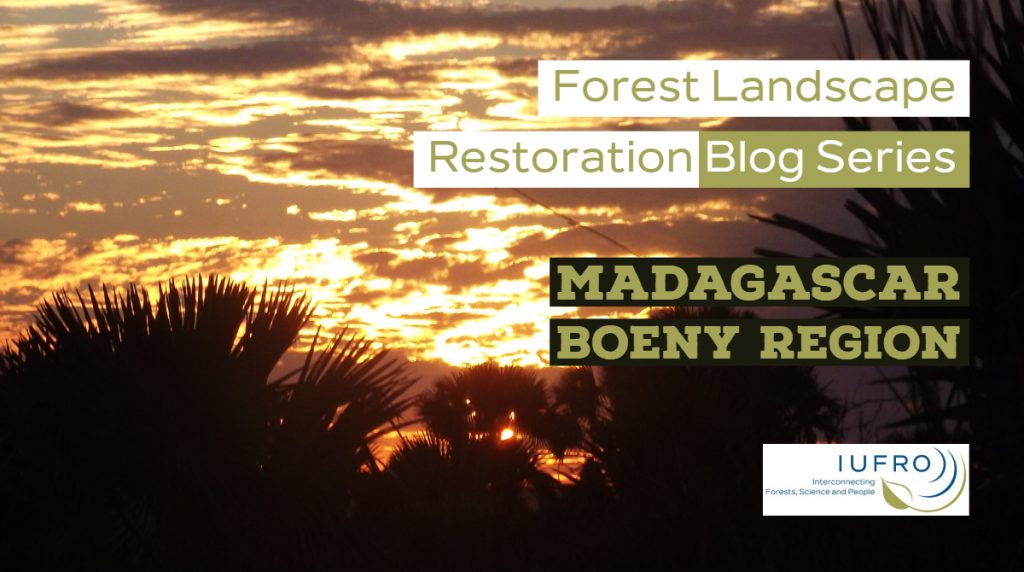Oui, oui mon ami, we are in Madagascar, the third blog post in our FLR Snapshot series. The fourth biggest island in the world and the house of lemurs. FLR is a hot topic in the Boeny Region, which is dominated by vast flat areas below 400 m in altitude, with volcanic rocks cutting across the long plains along the coast and a dense network of rivers flowing through the landscape. Among the important networks and governance structures in the region, is the FLR committee for the Boeny region, established to connect the many FLR actors and develop a common base for knowledge sharing and capacity development.

The Boeny region is socially diverse, predominantly rural and women are highly active in restoration. All the Malagasy ethnic groups are encountered in Boeny region and form together a melting pot. Less than 30% of the population lives in urban areas and a strong social movement in favour of women promotion is ongoing, as illustrated by the multiplication of what locals call “women’s association”, and with a visible growing importance of the International Women’s Day celebration every March 8th. One of the various FLR projects ongoing in the Boeny region, the Eden Project, reports among the positive aspects of the project that women account for 80% of the participants in the reforestation activities.
The forest restoration approach in this project was done by active interventions (plantation of native and exotic species) and natural regeneration (passive restoration). Nursery setting-up, species selection, establishment of fire protection, improving people’s livelihood by capacitating them with training and planting seedlings, 670 fixed staff including locals doing the plantation, were all part of the initiative planning.
Sadly, forest land tenure is a major issue in Madagascar and had profound implications for forest protection and restoration. Some of the locals were not in favor of the project implementation – they feared the project was an excuse to take their lands. Thus, in interviews, they mentioned they would have appreciated to be consulted before its implementation.
More work needs to be done to transform the top-down approach into a bottom-up effort since the farmers are the key of the initiative, but success with the high participation of women showed the importance of their participation and empowerment when it comes to land management and land rights.
Madagascar has committed with 2.5 and 1.5 million ha by 2020 and 2030, respectively to the Bonn Challenge – a global effort to bring 150 million ha of the world’s deforested and/or degraded areas into restoration by 2020 and 350 million ha by 2030.
Download the poster: https://www.iufro.org/fileadmin/material/science/spps/spdc/FLR_Snapshot/iwc19-flr-snapshots-poster-madagascar-Boeny.pdf
To find out more about Madagascar, watch their interview on the side-event Forest Landscape Restoration Implementation: Progress on the Ground during the XXV IUFRO World Congress 2019.
Check out the other countries to know more about forest landscape restoration.
Coming up next…
India: How strong political support has restored forests in India.

Leave a Reply